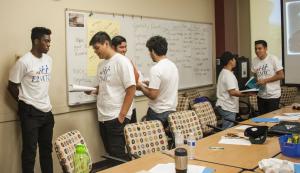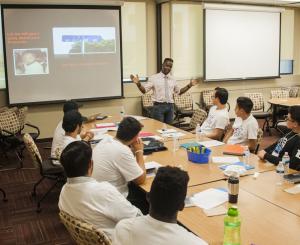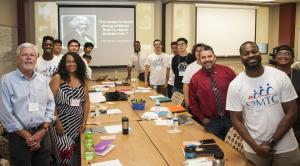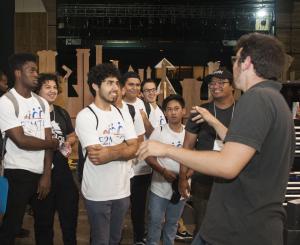There was a simple question asked to the room of eager students and mentors: “May I teach?”
The audience answered confidently: “Teach on.”
This question was posed by Darryl McKeller, a teacher with 20 years of experience in inner-city schools in LAUSD. His primary audience included a group of seven students of various ages, participating in Future Male Minority Teachers of Color (F2MTC). The program’s mission is to create a pipeline for male minorities to become elementary school teachers. 
From June 25 to 29, California State University, Northridge hosted a group of high school students and one college student for F2MTC’s summer bridge program. The event featured several workshops, including McKeller’s, which focused on topics such as mentorship, defending a position and teaching methods. Another workshop combined hip-hop and social justice to show the importance of teaching and mentorship through creating various rhymes with positives messages.
“All of my life I have had female teachers,” said participant and Northridge Academy High School student Adrian Lopez. “I think having men of color in elementary schools would make a big impact on the students.”
In the social justice and hip-hop workshop, the students were told to create a rap song about teaching. This technique was used to encourage and educate on various teaching methods.
“It was really good to see just how hard it is for teachers,” said Brandon Angulo, a Simi Valley High School student. “I want to be able to help the next generation and inspire them.” 
The workshops were full of students eager to learn and mentors eager to teach. Through bonding and mentorship, the experienced teachers are able to build a valuable relationship with the students to promote positive habits and lessons.
“There is a male teacher shortage is elementary schools nationwide,” said Shartriya Collier-Stewart, a mentor and co-director of the Kellogg Grant, a grant that supports the recruitment, retention and advancement of male teachers of color, which helped fund F2MTC. “Through mentorship and social justice, we are able to foster a generation of male minority teachers that can transform their communities.”

